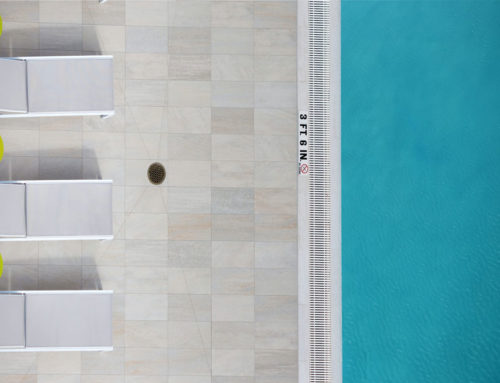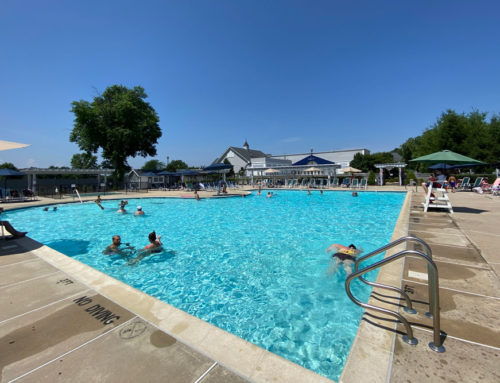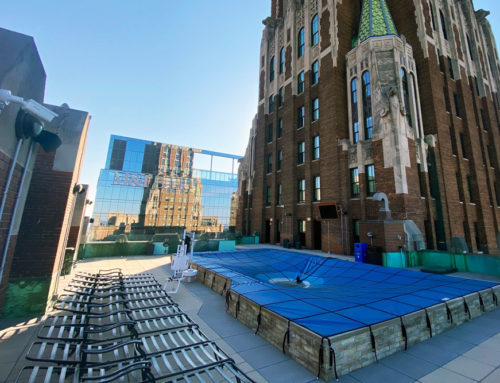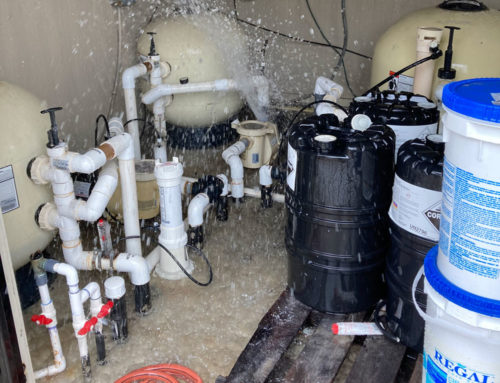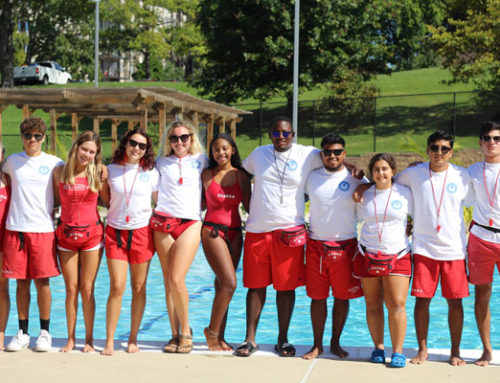
Thunder and lightning. While neither are good omens for summertime swimming, the same could describe the years 2020 and 2022. A simple call and response.
The year 2020 and the pandemic presented its own challenges. The lasting effects of economic slowdown created shockwaves throughout the aquatics industry.
For aquatics professionals to date, 2022 has been a year few prepared for, but none could prevent. The present seems uncertain with challenges ubiquitous to almost every industry. Having said that, it’s truly exciting to see what lies ahead for aquatics. As labor and supply demands increase, automation is making huge strides in both efficiency and efficacy.
To communicate a pragmatic picture, we’re devoting our summer blogs toward deeper dives (pun intended) into the industry. This four-part series will focus on specific details of our industry that make our ‘round-the-clock efforts go … well, ‘round the clock.
Where Have All The Lifeguards Gone?
Answer #1: It’s actually been happening for a while now — the pandemic just made it worse
This isn’t actually a unique topic — it’s not even a new one. Before the 2008 economic recession, the traditional consensus was almost objective. Lifeguarding was the coolest summer job a teen or young adult could have. But competition for entry-level jobs increased after the downturn. Young adults turned to internships in hopes of better job prospects after college.
So it’s actually a decade-long slow decline. But that accelerated after the pandemic. In 2020, American Lifeguard Association-credentialed lifeguards dropped nationwide between 15%–48%. The problem has only compounded as wage competition got more aggressive this year. More potential lifeguards opt for summer school and internships, while poolside positions remain open.
Answer #2: COVID and the Russia-Ukraine conflict
We staff over 8,000 domestic lifeguards a year with our nationwide recruiting program, Guard for Life. Even during the most productive recruiting years, many seasonal employers — from aquatic facilities to amusement parks — can trust international students to help fill empty slots.
We recruit many of our supplemental international guards through our affiliate J-1 visa sponsor program, United Work & Travel. Our overseas recruiting efforts are well-diversified. But what we’re seeing is that while some countries and students are clear to work in the U.S., others are still unable to participate due to COVID-19 travel restrictions.
These restrictions can range from proof of a negative COVID test within the last 24 hours, to no work travel at all overseas without a vaccination. A positive COVID test could limit an international student’s summer plans, or end them altogether. Also, vaccine availability isn’t always as widespread as it is in the United States.
Historically, Eastern Europe has been a huge participant in the U.S. J-1 visa program. But this part of the world is also experiencing incredible hardships right now. For many, the idea of leaving one’s home country for a summer of lifeguarding in the states, or any other summer position, isn’t even an afterthought.
Because of both factors, many international embassies are still hesitant to allow long-term work travel to the U.S.
Answer #3: Lifeguard training is slowly returning to indoor pools
After shutting down external bookings in 2020 to reduce exposure, many indoor swim facilities are allowing more time for outside groups to book lifeguard training programs. Unfortunately, the access to pooltime is still not where it was pre-pandemic. Lifeguards usually train indoors during the spring, so that they’re prepared and certified leading up to Memorial Day Weekend.
Not all states operate with equal expedience. Where mask mandates and other restrictions remain in effect, outdoor training is still the only option in some states. During the myriad spring showers, and stubborn cool temperatures, the weather doesn’t permit training outdoors much ahead of pool opening.
How American Pool is working to combat the nationwide lifeguard shortage
To be clear: The lifeguard shortage is not just an American Pool challenge, but a nationwide problem — and also a global one. When faced with a national issue, it helps to have nationwide resources in place. Luckily, this is where American Pool shines.
Many pool operators tend to rely on either a domestic or international approach to hiring. Our organization is biased toward domestic staff development; international recruiting is supplemental. Our diversified approach to job placement helps us to shift our recruiting and training resources wherever necessary.
Others have limited their recruitment to eastern European countries. But we have evolved beyond a narrow focus in one part of the world and are able to pivot and leverage our relationships from several continents.
We hear a lot of complaints in the marketplace that the lifeguard job has lost its luster and isn’t the cool summer job it used to be. We might disagree with the assertion, but we still understand it. That’s why we approach things differently than other recruiters. So, none of this has stopped us from identifying prime candidates who understand that a summer job with us is still one of the best options around.
Through our community outreach and recruitment programs, we’re always raising awareness of our work opportunities, as well as the competitive wages and performance incentives we offer. There’s a reason our existing staff keeps referring their friends and family to join the team, even during this hyper-competitive labor market.
Our lifeguard application process is a slow-but-sure return to our localized recruiting strategy. A new, super-efficient text-to-apply system also makes it easier for applicants to get in front of our recruiters.
We’ve also begun to open outdoor pools to start training when weather permits. If it’s not raining, we’re out training. Where indoor training is allowed, we operate expedient schedules to ready guards for the busiest pool season in three years. We understand the importance of eliminating barriers to training through affordable, frequent, and convenient certification classes.
How your pool can get through this summer’s lifeguard shortage
Despite the lifeguard shortage, it is still possible for every community to have a successful summer in 2022. Pool owners should be flexible and consider some short-term solutions to help reduce these obstacles:
- Operate on a condensed summer schedule. This accommodates lifeguards who may only be available when school is not in session.
- Reduce daily operational hours. This helps to decrease an employee’s hours, increasing availability and freeing overhead.
- Consider a “swim at your own risk” policy, if local and state regulations allow. If you’re in a state that doesn’t require lifeguards to be on duty, consider operating without them this year. Be sure to consult with your local health authority, insurance provider, and legal counsel.
Keep a lookout for part two as we continue to dive into our State of Aquatics series this summer!

